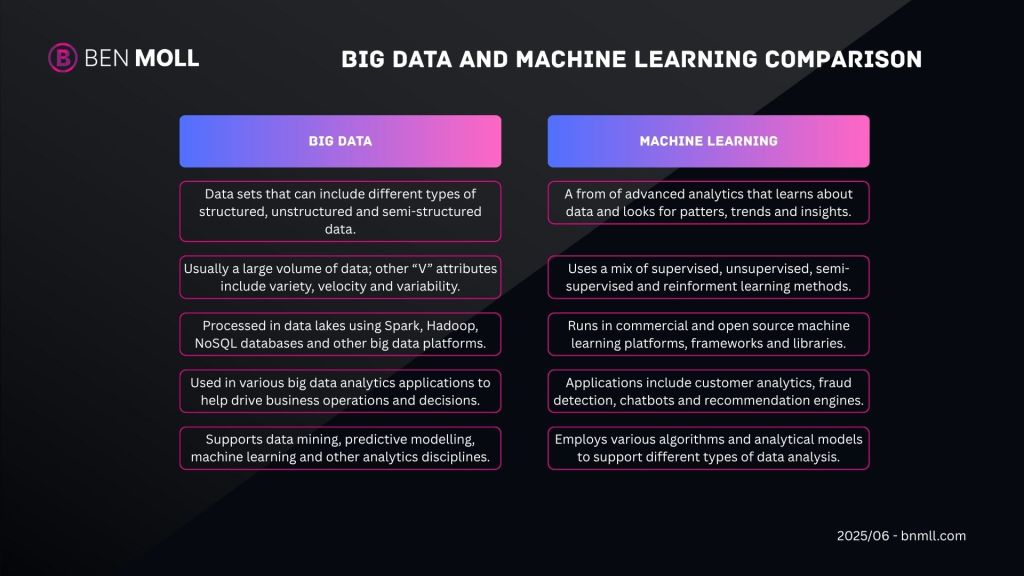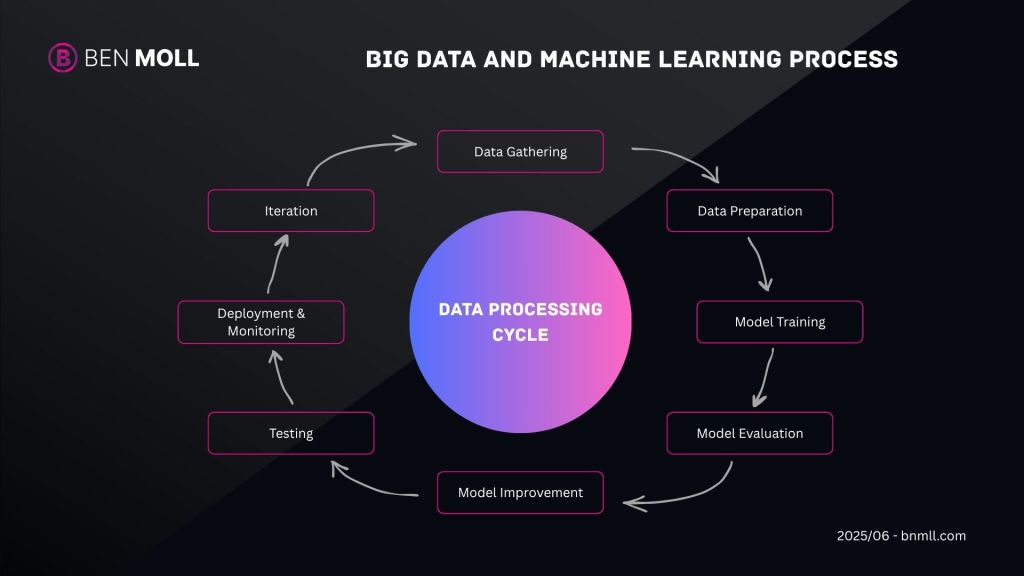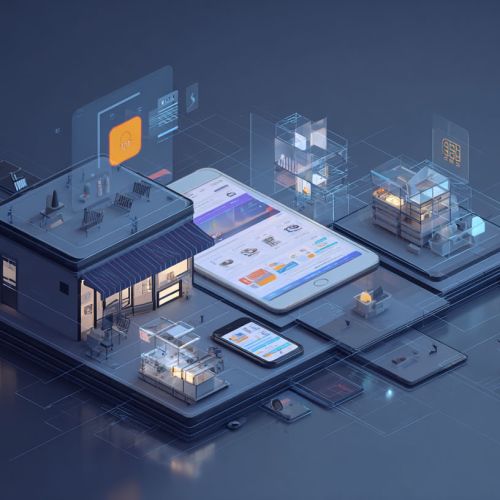In an era where data is the new oil, leveraging it effectively is the difference between marketing success and stagnation. Machine learning in digital marketing stands at the forefront, transforming vast troves of big data into actionable insights that power predictive analytics, personalization, and smarter decision-making. For CEOs, CMOs, and marketing directors invested in scaling their digital prowess, understanding how to harness these technologies is no longer optional but imperative.
This article explores how machine learning integrates with big data to elevate digital marketing initiatives. We delve into core applications such as predictive analytics in digital marketing, personalization strategies for UX, and conversion rate optimization strategies driven by data. Along the way, you’ll encounter proven machine learning marketing case studies and data-driven UX best practices that illustrate tangible business outcomes.
Understanding Machine Learning in Digital Marketing
Machine learning (ML) is a subset of artificial intelligence where computer algorithms learn from data patterns and improve their performance over time without explicit programming. In the context of digital marketing, ML algorithms analyze customer behavior, campaign performance, and external market signals to uncover insights that humans might miss.

Why Big Data Needs Machine Learning
Digital marketing generates enormous amounts of data daily — website clicks, social interactions, purchase transactions, and more. Human teams and traditional analytics tools struggle to process this volume with sufficient speed and granularity. Machine learning in digital marketing helps by:
- Automatically detecting patterns across variables like customer demographics, time, channel, and device
- Predicting future customer actions, such as likelihood to convert or churn
- Personalizing messaging dynamically based on real-time inputs
Without ML, the potential locked in big data remains mostly untapped.

Predictive Analytics in Digital Marketing: Unlocking Future Insights
One of the most powerful applications of machine learning in digital marketing is predictive analytics. This approach uses historical and real-time data to forecast future customer behavior, enabling marketers to anticipate needs and optimize campaigns proactively.
Common Use Cases for Predictive Analytics
- Lead Scoring: Identifying high-potential prospects by analyzing engagement, firmographics, and buying signals
- Customer Lifetime Value (CLV) Prediction: Estimating long-term revenue potential to prioritize marketing efforts and budgets
- Churn Forecasting: Detecting warning signs of customer attrition to trigger retention campaigns
- Demand Forecasting: Anticipating product demand shifts to time promotions and inventory management effectively
Companies can integrate these predictive models into marketing automation platforms to tailor content delivery precisely when and where prospects are most receptive.
Personalization Strategies for UX Powered by Machine Learning
Modern consumers expect highly personalized experiences across all digital touchpoints. Machine learning facilitates this by dynamically adapting web and app content, recommendations, and communications based on individual behavior and preferences.
Data-Driven UX Best Practices
- Real-time Behavioral Targeting: Using clickstream data to change messaging or offers instantly
- Adaptive Content Rendering: Displaying product or service suggestions curated by ML algorithms
- Segment-of-One Marketing: Treating every user as a unique segment with tailored user journeys
Implementing these data-driven UX best practices results in higher engagement, satisfaction, and ultimately, conversion rates.

Conversion Rate Optimization Strategies Enhanced by Machine Learning
Conversion rate optimization (CRO) traditionally relies on A/B testing and manual analysis. Machine learning elevates this by identifying high-impact optimization opportunities faster and with deeper insights.
How Machine Learning Enhances CRO
- Multi-Variable Testing: Evaluating dozens of variables simultaneously to find optimal combinations
- User Segmentation: Automatically clustering visitors based on behavior and tailoring tests accordingly
- Predictive Conversion Paths: Mapping customer journeys most likely to lead to conversions and focusing efforts there
- Anomaly Detection: Spotting unexpected drops or spikes in conversion metrics quickly for immediate action
Marketers adopting machine learning-driven CRO strategies are better equipped to maximize ROI from digital spend.
Implementing Machine Learning in Digital Marketing: Practical Steps for Leaders
For marketing leaders looking to integrate machine learning into their organizations, consider the following roadmap:
- Data Infrastructure Assessment: Ensure your data is clean, centralized, and accessible.
- Define Business Objectives: Identify KPIs machine learning can impact, such as lead quality or customer retention.
- Choose the Right Tools: Evaluate ML platforms and vendors that align with your goals and tech stack.
- Start Small and Iterate: Deploy pilots on specific campaigns to test hypotheses and gather learnings.
- Scale and Automate: Expand successful models organization-wide and integrate them into marketing workflows.
Consulting with AI and data science experts can accelerate this process and avoid common pitfalls.
The Future of Machine Learning in Digital Marketing
As machine learning technologies evolve, we expect even greater integration with digital marketing ecosystems. Emerging trends include:
- Explainable AI: Providing transparency about how ML decisions are made to build trust and compliance
- Voice and Visual Search Optimization: Using machine learning to interpret and respond to non-text search queries effectively
- Cross-Channel Attribution Modeling: More accurate linking of touchpoints to conversions using ML-powered analytics
- Hyperpersonalization at Scale: AI-driven content creation and media buying tailored to micro-segments
Forward-thinking marketing leaders should prepare now to incorporate these innovations and maintain competitive advantage.
Conclusion: Top 5 Takeaways
- Machine learning transforms big data into predictive and actionable marketing insights.
- Predictive analytics in digital marketing enables smarter targeting and campaign optimization.
- Personalization strategies powered by machine learning significantly enhance user experience and engagement.
- Machine learning-driven conversion rate optimization accelerates A/B testing and improves ROI.
- Successful implementation requires strategic planning, data readiness, and iterative scaling.
Ready to harness machine learning’s transformative power for your marketing? Request a personalized consultation to start your journey toward data-driven excellence today.






